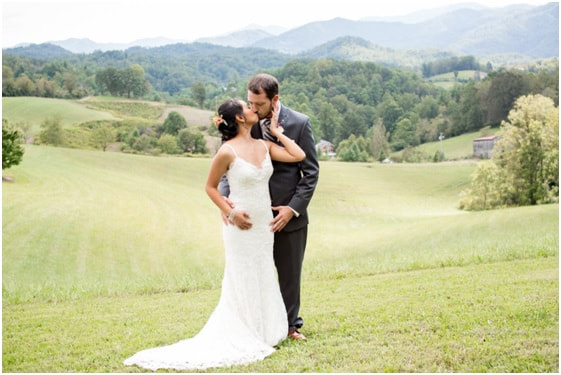Check In Early and Often A good coordinator will make your job easier. When you first sign a contract with your bride, ask if they are working with a coordinator or planner and if it’s a partial or full planning package. Then reach out to the coordinator to let them know you’re on the team, and make sure they have your mobile phone number and email address. A good coordinator will keep you apprised of any changes, create timelines and layouts, and take charge on the day-of, so you can concentrate on being the best at what you do. I even know some vendors that charge less if the bride is working with a planner, because less work for them!
Timelines A good coordinator will create the overall timeline, and share it with the vendors. There is no need for everyone to do their own timelines! I had one bride who had to fill out six different questionnaires for timelines: hairdresser, photography, DJ, etc., and by the end she was sick of it! (This was before she hired us.) When you first reach out to the coordinator, ask them when they will have a timeline ready. It is usually 6-8 weeks before the wedding. There’s really no point in doing a timeline more than eight weeks before the wedding. Lots of things may change prior to that time – who’s in the wedding party, which family members can attend, and sometimes the location changes. Do you really need to know their first dance song a year ahead? A good timeline will include all the major facets of the day, including set up and clean up times, and times for major things like ceremony, toasts, etc. You can take that and add things that are pertinent to you and your staff. Saves a lot of time!
Communicate Communicate Communicate A good coordinator will be the first person on site. On the day of, as soon as you get to the venue, check in with the coordinator to find out where you are supposed to set up and to get any updates to the timeline. Sometimes the weather changes things, and sometimes things get rearranged at the rehearsal. If you are running late, text them. If you leave the venue after set up, or if it is just a drop off, let the coordinator know. Make sure they understand how to use any equipment, which items need to be returned to you, and when they will be picked up. If your equipment is really valuable, try to leave someone behind to watch it. If you need to take a break during the event, we don’t mind covering for you for a few minutes. And if you have questions on the day of, contact the coordinator, not the bride or her mom, or the venue manager. A good coordinator will field questions and relay them to the appropriate person if necessary. That is primarily why people hire day-of coordinators (besides set up and clean up). They don’t want to be pestered with questions; they want to enjoy the event.
Put Me In Coach A good coordinator will take charge. The coordinator is like the coach of a football team. They decide who plays when, what the plays are, and when a change in strategy needs to be made. You’re a part of the team. The client, whether it is the bride or groom or the mom, is the quarterback. You can’t call an audible. In most cases, the coordinator has been working with the couple and their family for over a year. They’ve gotten to know them really well -- their preferences, their back stories, who doesn’t get along with whom, etc. It’s best to let the coordinator decide if something needs to be changed. And if the coordinator tells you that your outfit is not appropriate, or that the mom (who is paying for everything) does not want the garter toss, or the music is too loud, or that what you are doing is interfering with another vendor’s job or with a guest’s ability to enjoy the festivities, then you need to listen. It will result in better reviews for you, and more recommendations from the coordinator.
Show Some Respect A good coordinator knows her etiquette. For example, there is a certain amount of decorum and respect that is required when you are working a religious ceremony, whether Christian, Jewish, or interdenominational. There should be no talking, whispering, or joking around during the ceremony. There should be no movement at all that might distract the guests, the officiant, or the couple during the ceremony, and that goes especially for photographers and videographers. Although the coordinator can advise where it is best to station yourself during the ceremony, it is the officiant who is actually in charge of the ceremony. Be sure to check with them on their preferences. Flash photography is prohibited in most churches. So is standing behind the officiant or the wedding party. This holds true even if the ceremony is outside. If the officiant is just a friend who got ordained online, here is a general rule: Stay out of the way. I know you are trying to do the best for you clients, but their family and guests have travelled a long way, and they have the right to witness the ceremony without distraction. If you can’t get “THE SHOT” from somewhere in the back, maybe you need better equipment. An exception might be briefly standing in the aisle to capture mom being escorted to her seat, or the happy couple exiting. If you absolutely must stay in the aisle, kneel down so you are not blocking anyone’s view. Consult the coordinator when you have questions about whether or not something is appropriate, and heed their advice. It will make you look more professional.
Dress Code A good coordinator will dress professionally and wear a name badge. For vendors, pretty much anything goes during set up and clean up, but during the event, what you are wearing should be as similar to what the guests are wearing as possible. Short skirts, jeans (especially ripped jeans), and lots of visible tattoos are not appropriate for most formal events. Dress like you’re going to a job interview, because, in a way, you are. No one is going to recommend a DJ who wears sweatpants and a hoodie to a wedding (Yes, that happened). Wear a name badge. Comfortable shoes are understandable, of course, even if they are more casual. (I know one photographer who switches shoes 2-3 times during the day!) If you are moving around a lot and are likely to get hot and sweaty, bring an extra shirt (or two). And, for goodness sake, use deodorant!
Let’s Get Tipsy (NOT) A good day of coordinator will help keep an eye on the guests and alert the bartenders if someone needs to be cut off. But checking ID’s and cutting people off is the responsibility of the bartenders. That is why most venues require a licensed bartender who knows the state’s rules regarding alcohol service. However, if you see something, say something. Things like teenagers taking sips of beer when adults aren’t looking, or a guest who is so drunk they can’t stand up, can lead to HUGE problems later – for all the vendors - if there is an accident. It does not matter if they aren’t driving. If you can’t find the coordinator or get to the bartender, tell the venue manager or a security guard. And you should not be drinking alcohol yourself. You are at work. This is not a social event, for you.
A good coordinator will keep her clients happy, while also helping the vendors get their jobs done, and assuring that the family and guests are having a fabulous experience. It’s a tough job! But you can help. I know there are bad coordinators out there who are bitchy and boss around the other vendors, and I’m sorry about that. But the majority of coordinators are experienced professionals, and are only there to help everyone have a good time. If they have a suggestion, listen. They might see the opportunity for a great shot, the perfect song, or a special treat that will make you look good. A coordinator can be your best friend, if you will just let them.
p.s. Bonus Points: After the event, send the coordinator a link to any photos or videos you took, and ask for their review or recommendation for future events. And check in from time to time. Out of sight=out of mind.



 RSS Feed
RSS Feed
